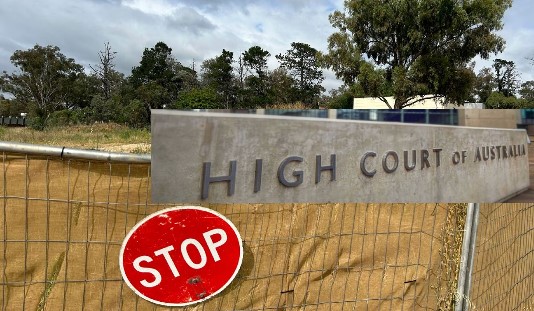
The highest court in Australia has recently rejected Russia’s request for an injunction to prevent the eviction of its embassy in Canberra.
The dismissal came after High Court Justice Jayne Jagot criticized Russia’s constitutional challenge to the law terminating the lease, describing it as weak and difficult to understand.
The eviction stemmed from emergency legislation passed by Parliament on June 15, citing security concerns due to the embassy’s proximity to Parliament House.
Russia’s lawyer, Elliot Hyde, argued that Ambassador Alexey Pavlovsky would lack confidence in the security and integrity of the consular building if the embassy was forced to vacate before the lease termination challenge was resolved.
Additionally, a man residing in a portable cabin on the site believed to be a Russian diplomat, was claimed to be a security guard protecting the compound.
Australian Prime Minister Anthony Albanese expressed his approval of the High Court’s ruling and expected that Russia would comply by vacating the site. He stated, “The court has made clear that there is no legal basis for a Russian presence to continue on the site at this time, and we expect the Russian Federation to act in accordance with the court’s ruling.”
The Russian Embassy did not provide an immediate response to the ruling. Previously, Russia accused Australia of exhibiting “Russophobic hysteria” in canceling the lease for the diplomatic site in Canberra’s diplomatic quarter, where Russia had plans to construct a new embassy. The existing Russian Embassy in the Canberra suburb of Griffith remains unaffected.
Subsequent to the court’s decision, the security guard left the premises. Reports from the media indicated that the guard, carrying bags, was picked up by a vehicle with diplomatic license plates.
Don Rothwell, an international law expert at the Australian National University, observed that based on the published list of accredited Russian diplomats in Australia, there were only three male diplomats who could potentially be the individual guarding the embassy site.
Rothwell expressed skepticism about the squatter’s claim of being a security guard and questioned whether he had diplomatic immunity, which could have hindered Australian authorities from evicting him.
According to Rothwell, “If the Commonwealth (government) issued an order to this individual — we’ll call him the security guard — to leave, as soon as he left the Commonwealth could then seek to completely secure the site and ensure that no one else could enter.”
The Australian Federal Police, who had previously refrained from clarifying why the man had not been removed as a trespasser from the disputed site, declined to provide an explanation last week.




